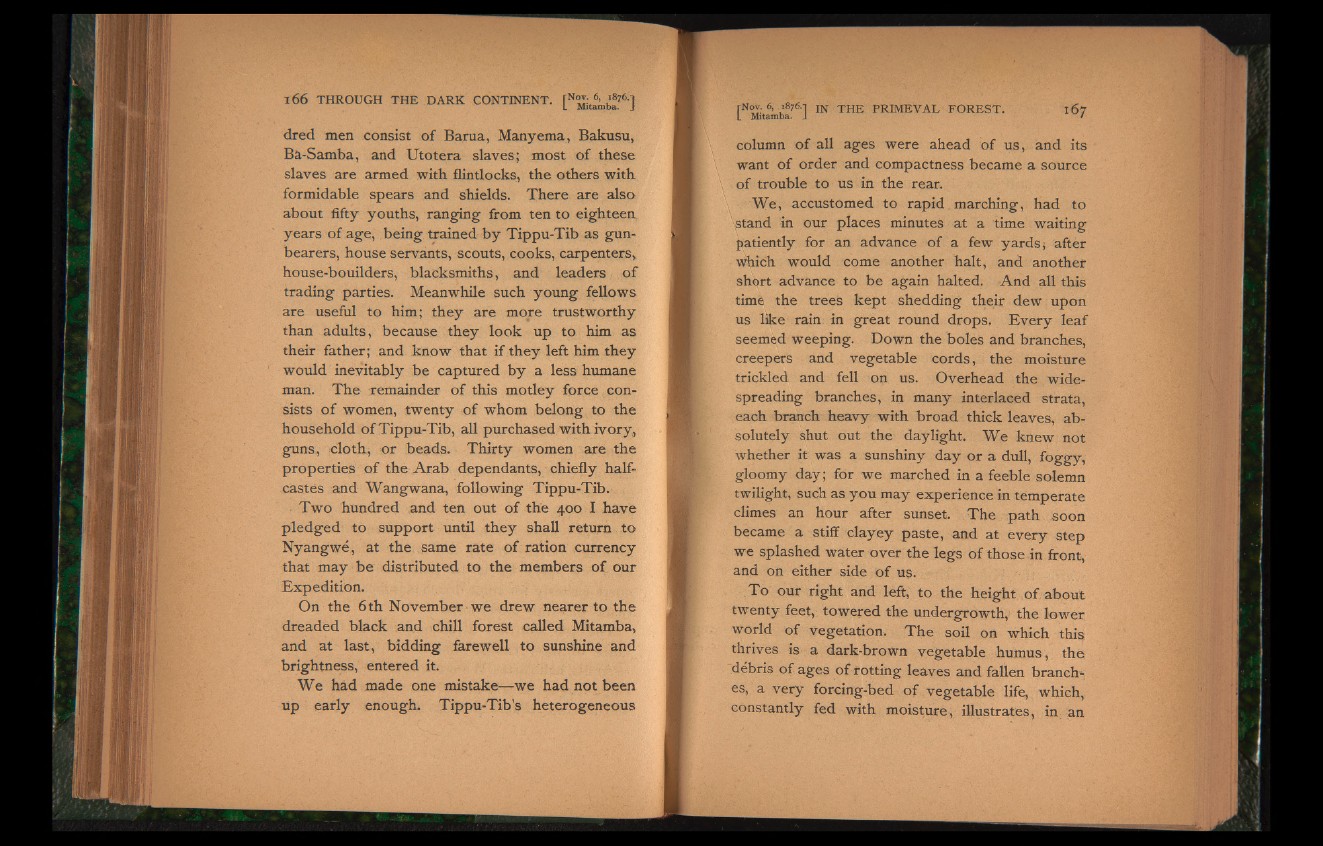
dred men consist of Barua, Manyema, Bakusu,
Bi-Samba, and Utotera slaves; most of these
slaves are armed with flintlocks, the others with
formidable spears and shields. There are also
about fifty youths, ranging from ten to eighteen
years of age, being trained by Tippu-Tib as gun-
bearers, house servants, scouts, cooks, carpenters,
house-bouilders, blacksmiths, and leaders of
trading parties. Meanwhile such young fellows
are useful to him; they are more trustworthy
than adults, because they look up to him as
their father; and know that if they left him they
would inevitably be captured by a less humane
man. The remainder of this motley force consists
of women, twenty of whom belong to the
household of Tippu-Tib, all purchased with ivory,
guns, doth, or beads. Thirty women are the
properties of the Arab dependants, chiefly half-
castes and Wangwana, following Tippu-Tib.
Two hundred and ten out of the 400 I have
pledged to support until they shall return to
Nyangwe, at the same rate of ration currency
that may be distributed to the members of our
Expedition.
On the 6 th November we drew nearer to the
dreaded black and chill forest called Mitamba,
and at last, bidding farewell to sunshine and
brightness, entered it.
We had made one mistake—we had not been
up early enough. Tippu-Tib’s heterogeneous
column of all ages were ahead of us, and its
want of order and compactness became a source
of trouble to us in the rear.
We, accustomed to rapid marching, had to
stand in our places minutes at a time waiting
patiently for an advance of a few yards j after
which would come another halt, and another
short advance to be again halted. And all this
time the trees kept shedding their dew upon
us like rain in great round drops. Every leaf
seemed weeping. Down the boles and branches,
creepers and vegetable cords, the moisture
trickled and fell on us. Overhead the wide-
spreading branches, in many interlaced strata,
each branch heavy with broad thick leaves, absolutely
Shut out the daylight. We knew not
whether it was a sunshiny day or a dull, foggy,
gloomy day; for we marched in a feeble solemn
twilight, such as you may experience in temperate
climes an hour after sunset. The path soon
became a stiff clayey paste, and at every step
we splashed water over the legs of those in front,
and on either side of us.
To our right and left, to the height of about
twenty feet, towered the undergrowth, the lower
world of vegetation. The soil on which this
thrives is a dark-brown vegetable humus, the
debris of ages of rotting leaves and fallen branches,
a very forcing-bed of vegetable life, which,
constantly fed with moisture, illustrates, in an